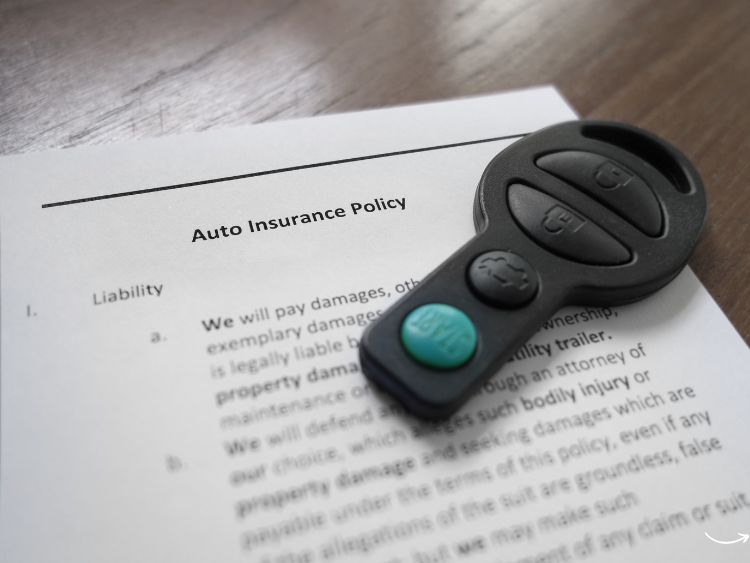Let’s face it—car insurance can be a real budget-buster if you don’t know where to look for savings. Whether you’re a first-time car owner or just trying to cut back on expenses, finding the cheapest car insurance is a game-changer. But what’s the secret to securing affordable coverage without sacrificing quality? This article dives into the tips, tricks, and insider knowledge to help you score the best deals.
Why Is Car Insurance So Expensive?
Car insurance rates can feel like a mystery. But here’s the deal: insurers calculate premiums based on risk. They look at factors like your driving history, age, location, and even your credit score. Some costs are beyond your control, but knowing how these factors influence rates can help you make smarter decisions.
Key Factors That Impact Car Insurance Rates:
- Age and Gender: Younger drivers often pay more due to inexperience.
- Location: Urban areas tend to have higher rates because of traffic and theft risks.
- Vehicle Type: Sports cars? Expect a higher premium. Economical sedans? Much cheaper.
- Driving Record: Speeding tickets and accidents can spike your rates.
How to Find the Cheapest Car Insurance
Finding affordable coverage takes a little research, but it’s not rocket science. Here are practical steps to help you snag the cheapest car insurance:
1. Compare Multiple Quotes
This might sound obvious, but you’d be surprised how many people skip it. Each insurer uses its own formula to calculate rates, so shopping around can reveal dramatic differences.
2. Consider Usage-Based Insurance
Drive less? Pay less. Some insurers offer pay-per-mile policies, which can be a lifesaver for occasional drivers.
3. Raise Your Deductible
Opting for a higher deductible (the amount you pay out of pocket in case of an accident) can lower your monthly premiums significantly.
4. Bundle Policies
Already have home or renters insurance? Many companies offer discounts if you bundle multiple policies.
5. Ask About Discounts
From good student discounts to safe driver perks, insurers often have deals that go unnoticed. Always ask what you qualify for!
Cheapest Car Insurance for Different Drivers
Teen Drivers
Insurance for teens is notoriously expensive, but discounts for good grades or completing a defensive driving course can help.
Seniors
Older drivers may find rates climbing as they age. However, some insurers offer senior discounts or special coverage plans.
High-Risk Drivers
If you’ve had accidents or DUIs, expect higher rates. Look into insurers specializing in high-risk policies—they’re often more forgiving.
Tips to Save Big on Car Insurance
Still looking for more ways to save? Here are some bonus tips that could make a huge difference:
- Drive Safely: Avoid speeding tickets and accidents to keep your record clean.
- Improve Your Credit Score: Many insurers use credit scores to set rates.
- Switch to a Cheaper Car: Vehicles with higher safety ratings typically cost less to insure.
- Pay Annually: Monthly payments might seem easier, but paying upfront often comes with discounts.
Common Myths About Cheap Car Insurance
“Cheaper insurance means worse coverage.”
Not always true! Plenty of budget-friendly options offer comprehensive coverage. You just need to do your homework.
“Staying with one insurer saves you money.”
Loyalty doesn’t always pay off. Regularly comparing rates ensures you’re not overpaying.
FAQs About the Cheapest Car Insurance
1. What’s the best way to find the cheapest car insurance?
Start by comparing quotes from at least three insurers. Look for discounts and consider factors like coverage limits and deductibles.
2. Is usage-based insurance worth it?
If you don’t drive much, usage-based policies can be a cost-effective choice. Just make sure your driving habits align with the plan.
3. Can I negotiate car insurance rates?
While you can’t haggle, you can ask about discounts or adjustments based on changes in your circumstances.
4. How often should I shop for car insurance?
It’s a good idea to shop around every 6–12 months, especially if your situation has changed.
5. Does credit score affect car insurance rates?
Yes, in most states, a higher credit score can mean lower premiums. Improving your credit can lead to significant savings.
Conclusion
Saving money on car insurance doesn’t have to be a headache. By shopping around, understanding your options, and taking advantage of discounts, you can find the cheapest car insurance that fits your needs. Remember, the key is to strike a balance between affordability and adequate coverage—because peace of mind on the road is priceless.
Authoritative Links
- National Association of Insurance Commissioners (NAIC): https://www.naic.org
- Insurance Information Institute: https://www.iii.org
- Consumer Financial Protection Bureau: https://www.consumerfinance.gov

